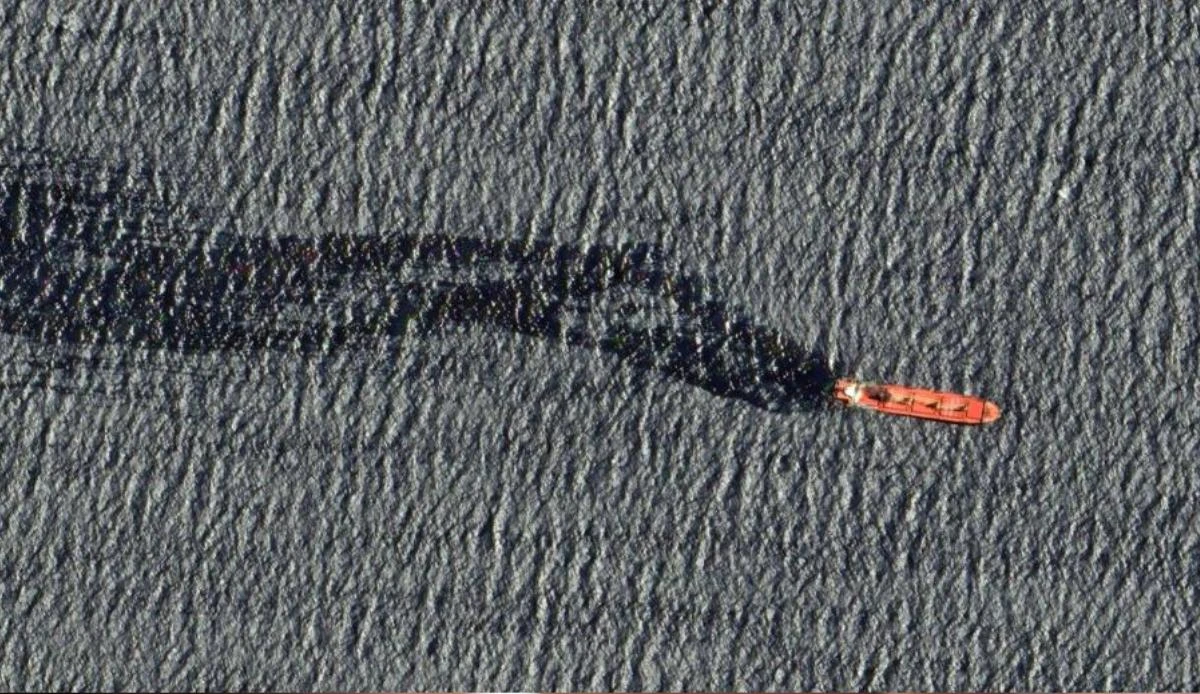Lebanese-operated Rubymar sinks in Red Sea, poses environmental threats

Belize-flagged Rubymar, operated by Lebanese authorities, sinks in Red Sea, carrying 21,000 metric tonnes of ammonium phosphate sulfate fertilizer
In a recent development, the Belize-flagged Rubymar, operated by Lebanese authorities, succumbed to the depths of the Red Sea on Saturday, carrying a cargo of 21,000 metric tonnes of ammonium phosphate sulfate fertilizer, as reported by US Central Command.
The vessel had been grappling with water ingress since sustaining damage to its hull from a Houthi missile strike on Feb. 18. This incident marks a significant blow to commercial shipping, becoming the most impactful event since the rebels initiated targeting operations against vessels in November.
Prior to its sinking, the Rubymar had already left a trail of environmental concern, leaking fuel and creating a slick on the water’s surface. Now submerged, it presents a fresh set of challenges, potentially exacerbating ecological risks.
Abdulsalam al-Jaabi from Yemen’s governmental environmental protection agency highlighted the dual threat posed by the vessel’s cargo. Firstly, the risk of oil pollution persists, with an estimated over 200 tonnes of fuel oil onboard. Secondly, the soluble nature of the fertiliser cargo raises concerns for marine life and ecosystems, including coral reefs and seaweed.
The potential fallout from this environmental hazard extends beyond immediate ecological concerns. With approximately 78,000 fishermen and their families, roughly half a million individuals, at risk of impact, the economic ramifications loom large, particularly for coastal communities already reeling from the effects of ongoing conflict.
Yemen’s Houthis, who seized control of the capital Sanaa in 2014, have been engaged in a Red Sea campaign since November, purportedly in solidarity with Palestinians amid the Israel-Hamas conflict. The sinking of the Rubymar marks a critical juncture in this maritime conflict, underscoring the far-reaching consequences of targeted attacks on commercial vessels.
Efforts to mitigate the potential fallout have faced logistical hurdles, with plans to tow the vessel thwarted by refusals from port authorities in Aden, Djibouti, and Saudi Arabia. Concerns over the environmental impact have led to these refusals, highlighting the urgency of addressing the situation.
Julien Jreissati, Middle East and North Africa programme director at Greenpeace cautioned against the escalation of the crisis, emphasizing the need for immediate action to prevent further environmental degradation. The United Nations Environment Programme, along with Yemeni authorities, is poised to conduct assessments to gauge the extent of the damage and devise appropriate response measures.
As the Rubymar sinks deeper into the Red Sea, the specter of environmental catastrophe looms large, with implications not only for marine life but also for regional trade and livelihoods. As stakeholders grapple with containment efforts and responsibility attribution, the urgency of averting a worst-case scenario remains paramount.
Source: AFP



